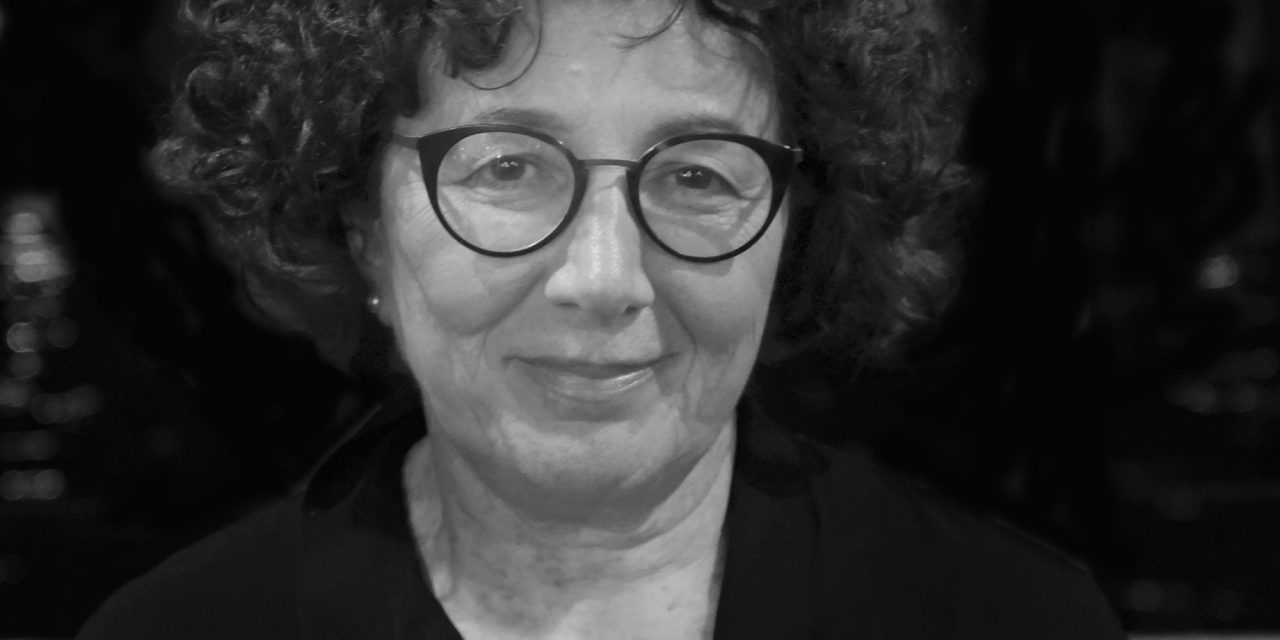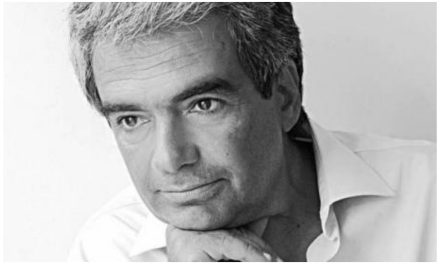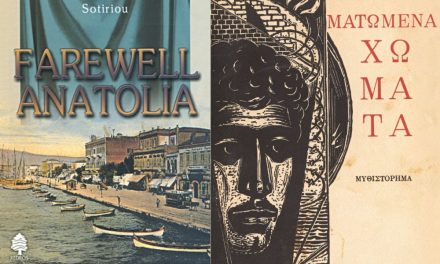Maria Papadima is a translator and translation theorist, a professor at the Department of French Language and Literature at the National and Kapodistrian University of Athens. She studied French Language, Comparative Literature and Translation in Athens, Paris, Brussels and Lisbon. She worked as a translator in the Council of the European Union. She was president of the Department of French Language and Literature of NKUA (2014-2018) and director of the Inter-Faculty Postgraduage Programme “Translation Translatology” (2013-2015). She is currently director of the Postgraduate Programme “Greek and French studies in Literature, Culture and Translation”.
She has published many theoretical texts on translation in Greece and abroad, while she has translated a great part of the work of Fernando Pessoa, as well as woks by Machado de Assis, Lobo Antunes, Samuel Beckett, Boris Vian, Octavio Paz, etc. Her study The Multiple Mirrrors of Translation was published in 2012, while in 2021 she edited the collective work Citizen of Babylon. She received the State Award for Literary Translation for The Book of disquiet by Pessoa (2008) as well as the Knight’s title in the Order of the Academic Palms from the French Republic (2018).
What made you turn to literary translation? Which have been the main challenges you were faced with throughout your decade-long involvement in literary translation?
I had been writing since the age of eight. I published my only collection of poetry at the age of fifteen and I am still proud of those debut poems. I continued to write, but also to read a lot. So inevitably came the comparison with the great works, the great writers and the doubt about my own talent. I decided — I must admit that the decision was neither conscious nor spontaneous but the result of a long internal process — not to publish anything more but instead to dedicate myself to translation. The transition from primary to secondary writing was for me quite a natural process. And thus “being ready for a long time, being brave”, to paraphrase the verses of the poet I admired the most, I threw myself into the translation arena. My luggage was literary, a PhD in comparative literature, a good knowledge of foreign languages and the fact that I had lived in the respective countries.
Although I did not study translation — translation studies were in their infancy at the time — all the above helped me a lot in translation, in an in-depth understanding of the foreign work and in delving into its every detail. Today I can say that I was destined for translation; it fits my temperament perfectly. You do not have the agony of writing and the respective critique because all these primarily concern the creator of the work. What a translator is called to do is to fully understand the author, his/her time, his/her influences, the language he/she uses, the space and time of his/her work, so as to be able to interpret the author’s intentions and consequently to make him/her, in this case, speak Greek as if he/she were writing in Greek, with his/her own personal idiom that the translation should invent from the start.
In conclusion, I can say that there are two main challenges for a translator of literature: on the one hand, as far as each individual writer is concerned, it is the way his/her style is transcribed in the foreign language; on the other hand, regarding the foreign language-culture which a translator translates from, it is to confront all those differences that arise from the lack of analogies both vis-à-vis the respective linguistic potential and the cultural elements. For example: when I translate Pessoa or Lobo Antunes, I am mainly concerned with the transcription of their particular style; when I translate Machado de Assis or Stendhal’s Italian chronicles — what I am currently working on — I am called to convey to the present a past era with its own linguistic and cultural elements. Many projects certainly combine both. Languages and cultures do not overlap, there is always something left over or missing. The major challenge — I have come to realize after so many years of work — is what is not said or does not exist in our language while it naturally exists in the other language-culture.
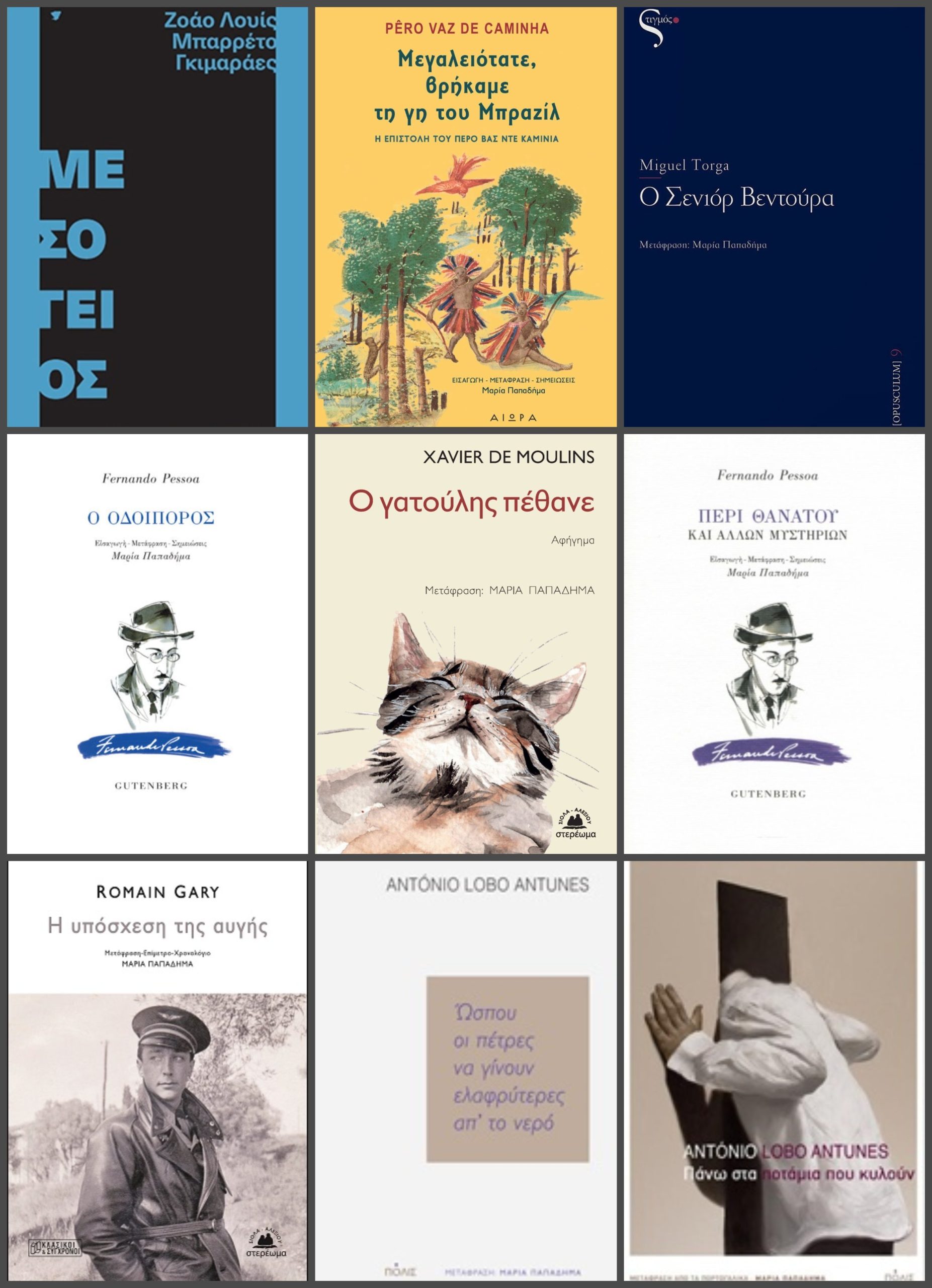
You recently translated O Senhor Ventura by Miguel Torga, one of the greatest Portuguese writers of the 20th century (Stigmos, 2021). Tell us a few things about the book.
Completely unknown until recently in our country — since there was no translation of his work—, Miguel Torga (1907-1995) is an award-winning novelist and poet, a genius exponent of a broad Iberian conscience, which includes not only Portugal but also Spain, as the writer himself stated: “I am a Spanish Portuguese. I was born in a village in Trás-os-Montes, but I breathe all the air of the Iberian Peninsula. […] I like to feel Galician, Castilian, Andalusian, Catalan, Asturian or Basque […] As I add to the harsh condition of existence that of writing, I have carved a lot of paper to narrate the emotion of this physical and spiritual co-existence without borders”, he wrote in his Diary. The boundaries that exist in his work are those of the man-inhabited world, seen as “a universal reality that decomposes into billions of individual realities”.
Such an individual reality, inscribed in the universality of the human condition, is O Senhor Ventura, in which we become witness of the exemplary reversal of the author’s famous saying: “The universal is the local without walls”, since if we remove the walls of the protagonist’s nationality, the local indeed acquires an ecumenical dimension.
In O Senhor Ventura, Miguel Torga narrates the adventures of a Portuguese Don Quixote, who leaves his native land to wander to the ends of the Portuguese empire and beyond, trying to change his destiny. From Alentejo to Macau and from China to Manchuria, crossing the vast Russian lands with the Trans-Siberian to return to his birthplace.
A farmer, a soldier, a sailor, a smuggler, a ruthless adventurer, Senior Ventura is attracted to danger, his blood demands adventures and struggles, but at the same time he painfully experiences friendship, solidarity, love, duty, nostalgia, expressing in a unique way the complexity of human condition.
“If the author is the protagonist, the translator is the invisible hero”, you write in Citizen of Babylon (nissos, 2021). Could you elaborate on that?
Portuguese Nobel laureate Jose Saramago once said: “Writers make national literature, while translators make world literature”. What greater recognition for translators by a major writer! However, their arduous and pivotal work, their role and ultimately their name are often not even mentioned, while they are ignored by critics and readers. If Madame Bovary is translated for the umpteenth time today, both Flaubert and his translator should receive equal recognition.
This invisibility of the translator, at times his/her complete absence even from the cover of the book he/she has translated, was confirmed, a few months after the publication of my book, and more specifically on September 30, 2021, on the day of the patron saint of translators Saint Jerome, by the Society of Authors campaign “TranslatorsOnTheCover”, signed by 400 writers who demanded the obvious: to always have the translator’s name on the cover of the translated book.
Citizen of Babylon aims to give voice exclusively to translators, to make them visible, to give them a leading role, to move them away from the inferior position they have — when they have it, and always in smaller letters — on the cover of the translated books, to offer them the opportunity to talk about their work in the first person, to share their experiences and thoughts; in other words, to open their workshop and their hearts to the readers of their translations so that they get to know them and look for their names, in the same way they search for the name of their favorite author.
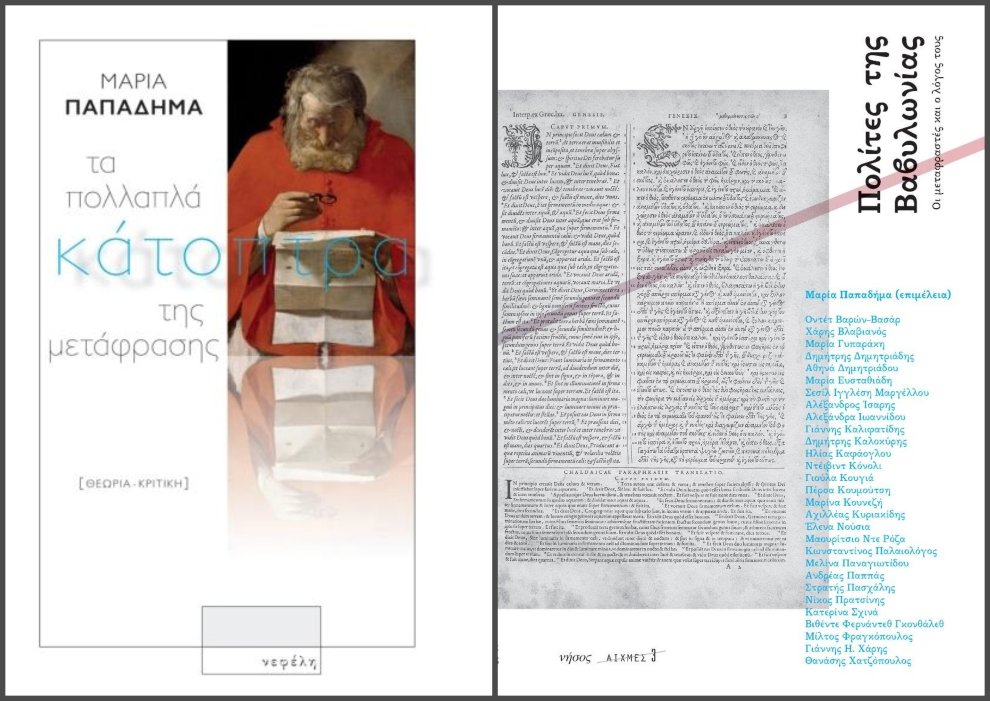
How did your involvement with the work of Pessoa begin? What makes Pessoa classic and at the same time more relevant than ever?
My acquaintance with Pessoa almost forty years ago was for me a kind of revelation, a spiritual flare, a thunderous love. I must admit that I didn’t feel the greatness of his writing from the beginning, I rather suspected it and with the momentum of youth I succumbed to the creator of heteronyms and thus began to passionately read him. Pessoa, like all great writers, preceded his time, something he was fully aware of. Today that a century has passed since the time he wrote, he continues to express ours, because his work reflects the chaotic diversity of modern experience, its fundamental emptiness, the imperfect and the incomplete, the fragmentation with which we are confronted. Pessoa used heteronomy to express different philosophical and aesthetic opinions, achieving a more complete understanding of reality. He attempted to confront the elusive question of ‘who am I?’, by detaching his heteronymous creators from his own personality, by declaring himself ‘a scene where different people parade’, and this is exactly what makes him unique in the history of world literature.
Ιn your book The Multiple Mirrors of Translation (Nefeli, 2012) you approach major questions related to the translation process, among which the phenomenon of re-translation, that is a translation of something that has already been translated. Would you say that translation is always accompanied by a kind of mistrust?
The approach of the translation process in the light of re-translation refers to the juxtaposition of overlapping or concurrent translations of the same work which diverge or converge to different degrees given that they are products of a certain translator’s subjectivity and a specific time. Re-translation constitutes a complex phenomenon with linguistic, philological, historical, ideological, cultural, social, economic and other dimensions. It is mainly triggered by the following factors:
A) the incomplete nature of the translated text,
B) the finite temporality of the translation,
C) the translation impulse that connects a translator with a work;
D) commercial expediency, especially with regard to classic works.
The first factor, the inherently imperfect nature of the translated text, is directly related to the disbelief, the suspicion that the translation falls short of the original. As the French translation scholar Georges Mounin points out: “All the arguments against translation can be summarized as follows: it is not the original”. The original constitutes a multidimensional grid of relationships that contains all its possible interpretations.
Translation disrupts their potentially harmonious coexistence as another linguistic system and another subjectivity, that of the translator, are called in vain to reproduce the same pattern. By multiplying the original infinitely and interminably, re-translation highlights the instability of the translated text, its precarious nature, since no translation can exist in a single form so as to be, in accordance to the original, a “solid starting point”, to use the words of well-known translation theorist Antony Pym.
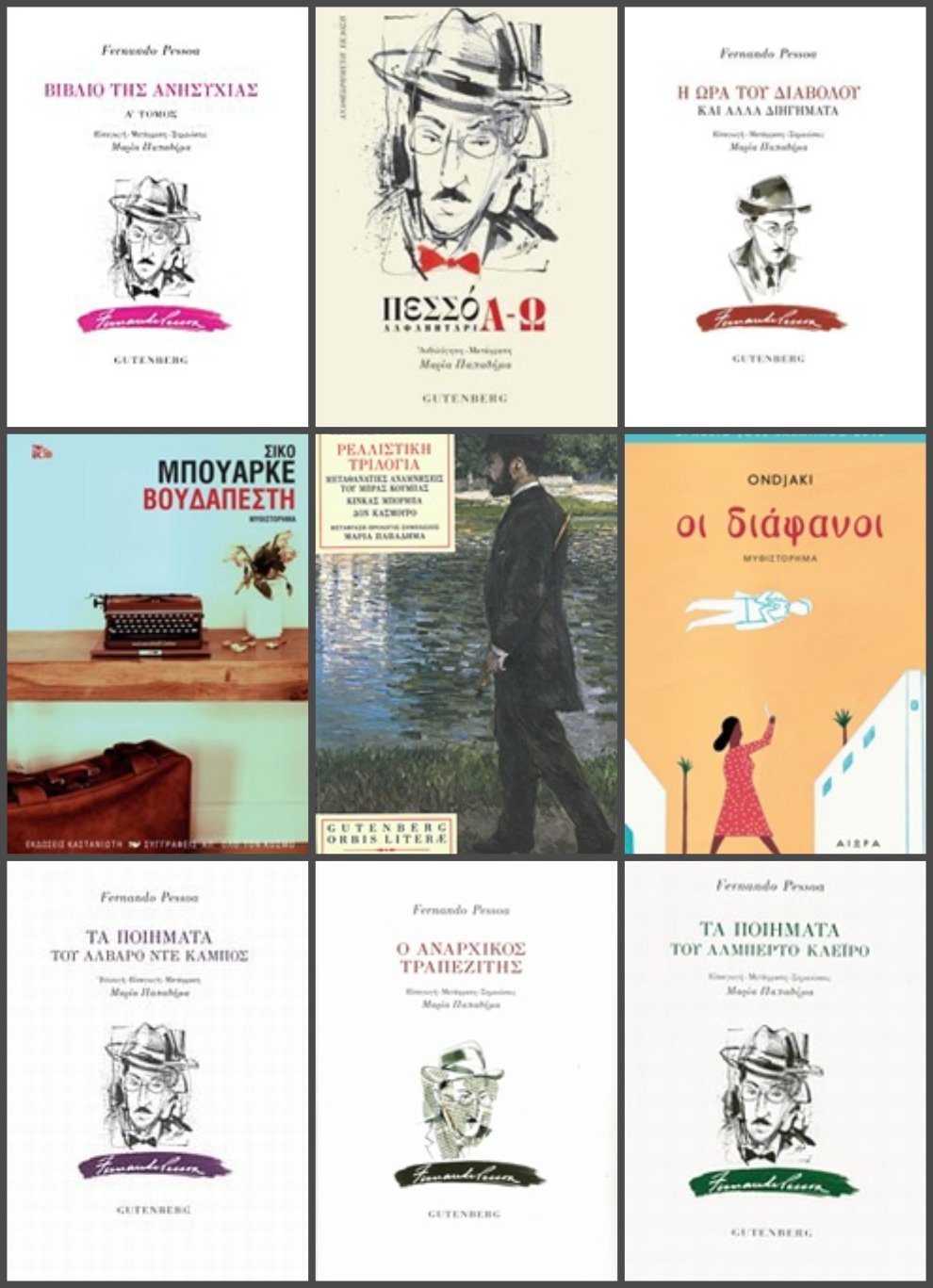
In an interview to Reading Greece, Elena Pallantza emphasized on the “artistic dimension of a translator’s work”, who “seeks to literarily address the problem of silence of a text in a foreign language”. Would you agree that translation is an autonomous act with its own artistic and aesthetic value?
Translation doesn’t constitute an autonomous artistic expression like actual writing; however, neither does it constitute a sterile copy of the original in the sense of its mimetic reproduction. In other words, translators are not like painting copyists, the most capable among whom may fill the market with forged works which are difficult to distinguish from the original. Translators are called to recreate the same work with different materials and distinct colour shades from their pallets — the other language — to invent a voice, a speech, a personality who would potentially be the foreign writer if he/she wrote in Greek, which in this case would have its own aesthetic and artistic value. That is why I do not agree with the bilingual editions that are published especially in poetry. Citing both the original and the translated poem, apart from whatever practical or pedagogical value, chains the translation in the chariot of the original, not allowing it to declare its own artistic and aesthetic beliefs.
GreekLit, a new translation funding program has recently been launched by the Ministry of Culture. How important are such initiatives for the dissemination of Greek Letters internationally? In this respect, could translation contribute to a better understanding between cultures and translators act as cultural ambassadors between countries?
All initiatives that aim to strengthen the presence of the Greek book abroad are certainly welcome. There is no need to mention that Greek is a language of a small number of readers, so translation of Greek literature automatically multiplies its readership. There are required concerted and systematic efforts vis-à-vis translation, meetings, exchanges, attracting publishers, translators, critics, that is the promotion of the Greek book both in the short and the long term. Many of our most important older writers are absent from the most spoken languages, while for the younger Greek writers, who write and publish today, the globalization and multilingualism that we experience in all aspects of our lives, require communication with their counterparts who write in different languages.
Νo matter what name we endow translators with, either that of a mediator or of an ambassador, they constitute the most appropriate means for a literature to move beyond its narrow, national borders. Let me give you a personal example that confirms the power of translation: I would never have known Pessoa, and thus I would not have learned Portuguese to translate him into Greek had I not first read him in his French translations. Translation is like a matryoshka doll; it hides many others inside.
*Interview by Athina Rossoglou
*iNTRO IMAGE: @Vasilis Karkatselis

